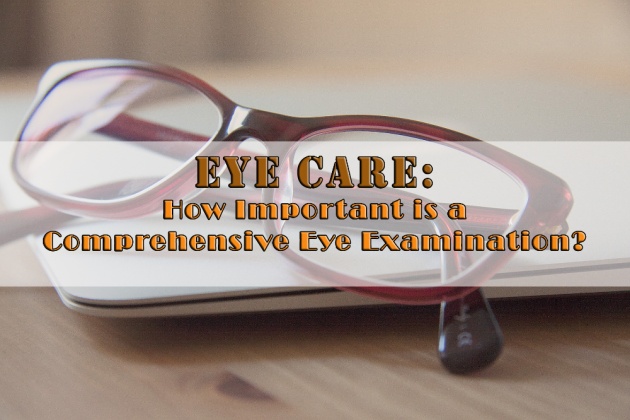
Image Credit: BarnImages via Pixabay
Admit it. we are all guilty of ignoring the health of our eyes, especially the ones who have never had any problems with their vision. But no matter how perfect our vision is, the sad reality remains that we all age. And as we age, so does our body. So, age is not just a number, after all.
✯ What is a Comprehensive Eye Examination? ✯
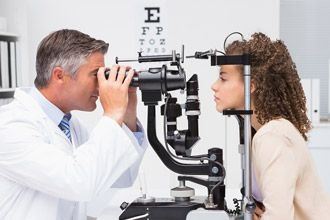
Image Credit: https://www.allaboutvision.com/
A comprehensive eye exam is an important part of preventative health care and is usually conducted by a Doctor of Optometry. You can think of it as a physical exam but for the eyes. And just like a physical exam, a comprehensive eye exam looks at the entire eye and visual system. It can detect all sorts of eye diseases and disorders such as refraction errors, cataracts, glaucoma, macular degeneration, and retinal detachments. It can also be used to detect some systematic health problems such as high blood pressure and diabetes.
✯ Importance of Eye Exams ✯
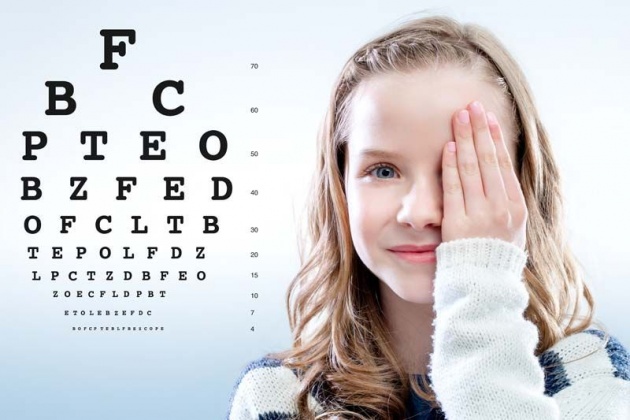
Image Credit: https://www.pcpforlife.com/
Something as simple as undergoing regular eye exams can help you detect the early signs of eye problems--when they are still in their most treatable stages. It also gives your eye doctor a chance to help correct your vision--or, at the very least, help you adapt to the vision changes you are experiencing. They will also be able to give you useful tips on how to properly care your eyes. Moreover, it can also help you catch more serious health conditions such as diabetes and high blood pressure.
✯ When is the Best Time to Have an Eye Exam?
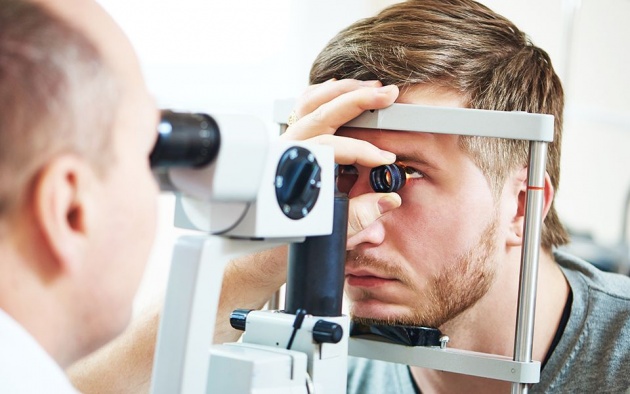
Image Credit: http://www.uhhospitals.org/
You need to regularly visit your eye doctor for your eye test. However, the word 'regular' is such a relative term. Several factors, such as your age, eye condition, overall health, and your risk of developing more serious eye problems may affect how often you need to have an eye exam. Here is the general guideline if you are interested to learn more.
✯ Children 5 years and younger
Pediatric ophthalmologists look for the most obvious and common eye problems in children who are under 3 years of age. Such eye problems include crossed eyes, lazy eye, or turned-out eyes. However, making them cooperate for a more comprehensive eye exam will be difficult at this age--which is why it is done between the ages of 3 and 5.
✯ School-age children and adolescents
It's generally a good idea to have your child's eyes checked before entering first grade. If he or she does not have any vision problems and have no family history of vision problems or eye diseases, then you can have your child's vision checked once every one or a couple of years. Otherwise, have his or her eyes checked as often as the doctor recommends.
✯ Adults
If you've never had any eye problems (lucky you!), then you can have your eyes checked every 5 to 10 years if you are in your 20s to 30s. If you are aged between 40 and 54, then it is recommended that you visit the eye doctor every 2 to 4 years. And as you keep aging, the interval at which you need to visit your eye care specialist shortens. So when you are between 55 to 64, you need to visit your doctor every 1 to 3 years--and 1 to 2 years after age 65.
However, you need to have your eyes checked more often if you are wearing glasses or contact lenses and have a family history of eye diseases, as well as have a chronic disease--such as diabetes--that increases your risk of developing an eye disease.
✯ Types of Eye Care Specialists ✯
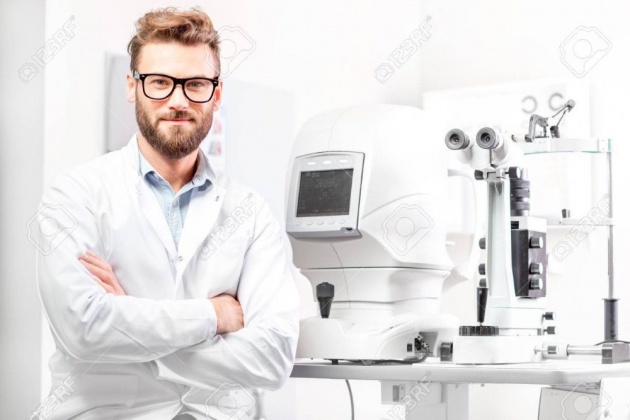
Image Credit: https://de.123rf.com/
Up until recently, I've always thought there is only one kind of eye care specialist and that they are not considered as doctors. But after researching more due to my son's eye condition, I found that there are actually 3 kinds of eye care professionals. Here they are and how they differ from each other.
✯ Optometrist
An eye doctor who has earned the Doctor of Optometry (OD) degree is called an optometrist. Optometrists examine eyes for both vision and health problems. They also prescribe contact lenses and eyeglasses in order to correct refractive errors. Some even provide vision therapy and low vision care.
An optometrist may get involved in your pre and post-operative care after an eye surgery. However, they are not usually allowed to perform the surgery themselves.
✯ Ophthalmologist
Ophthalmologists may either be a medical doctor (MD) or a doctor of osteopathic medicine (DO)--but no matter what they are, they specialize in vision and eye care. They are generally trained to perform eye exams, as well as diagnose and treat eye problems, prescribe medications, and even perform eye surgery. And just like optometrists, they can also prescribe contact lenses and eyeglasses.
Some of the responsibilities of optometrists and ophthalmologists are quite similar but they differ vastly in their education. An optometrist's education can be likened to that of a general dentist while an ophthalmologist's education may be considered much closer to that of an oral surgeon.
✯ Optician
Opticians are not eye doctors--but that doesn't mean they are not an important member of your eye care team. While optometrists and ophthalmologists prescribe eyeglasses and contact lenses, you need someone to actually make and fit them on you. Opticians don't need to finish a medical degree just like optometrists and ophthalmologists do. They only need to complete and pass an opticianry training program to get licensed.
✯ What Happens During an Eye Exam? ✯
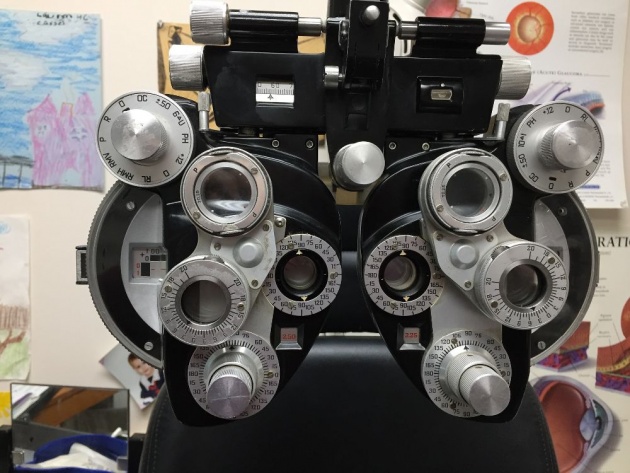
Image Credit: ghcassel via Pixabay
During your comprehensive eye test, your doctor will check your overall medical and vision history. After that, they will conduct the following to assess your eye condition.
- Visual acuity
- Eye muscle movement
- Refractive error
- Visual field
- Color vision
Your eye doctor will also be able to determine the general health of your retina and if there are any physical health issues concerning the eyes and the surrounding structure like the eyelids and lashes, as well as if you are at risk of developing glaucoma.
Watch this video to learn more about what happens during an eye exam.
Video Credit: MonkeySee via Youtube
✯ Final Thoughts ✯
Our eyes are just as important as any other organ in our body. However, they arealso one of the most abused and neglected parts of the body. Going to the eye doctor from time to time for a comprehensive eye exam will not take much of your time. In fact, the whole process can be done in just 30 minutes or so. We only have one pair of eyes, so let's take care of them before it's too late.
~oO0Oo~~oO0Oo~~oO0Oo~~
Thanks for reading! Have a wonderful day ahead of you and keep smiling. :)
Written by Chineyes for bitLanders
For more quality blog posts, you may visit my page
Not yet on bitLanders? Sign up now and be rewarded for sharing ideas, photos, and videos!



